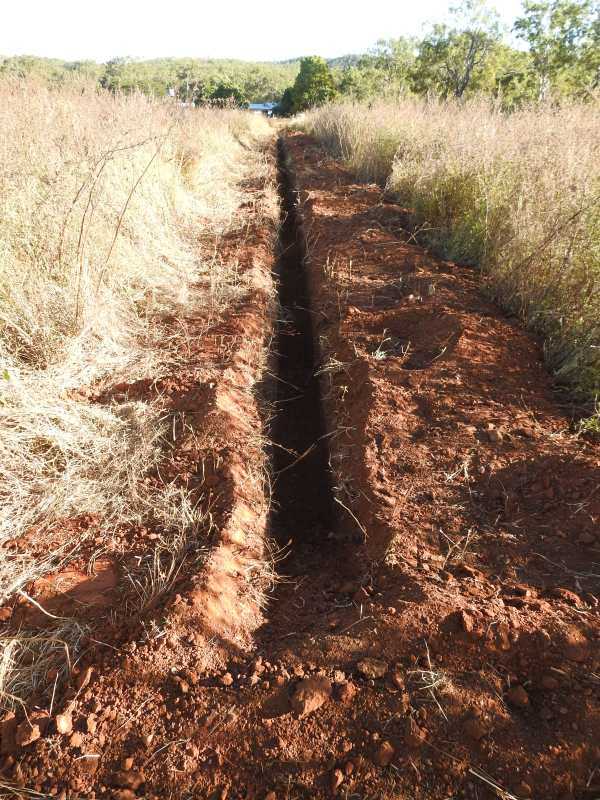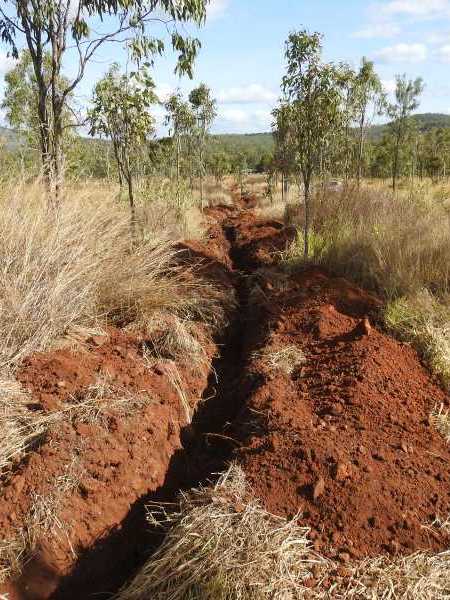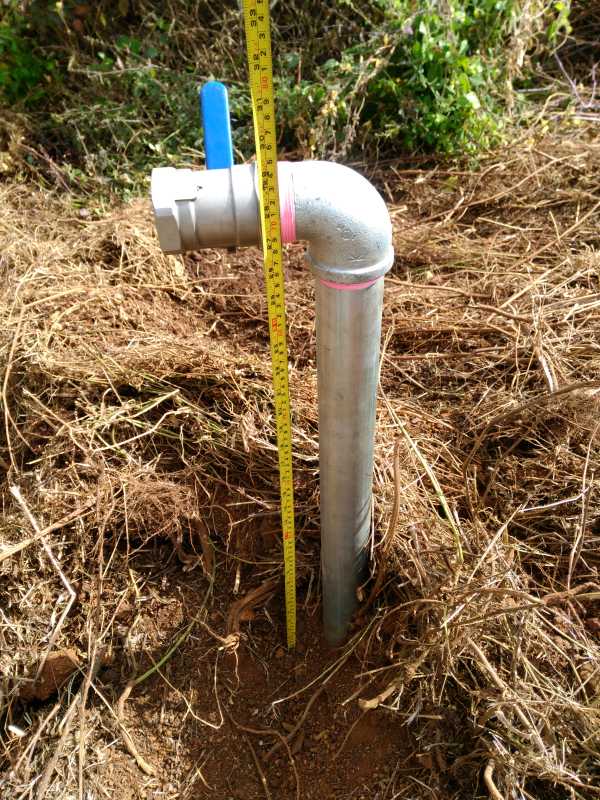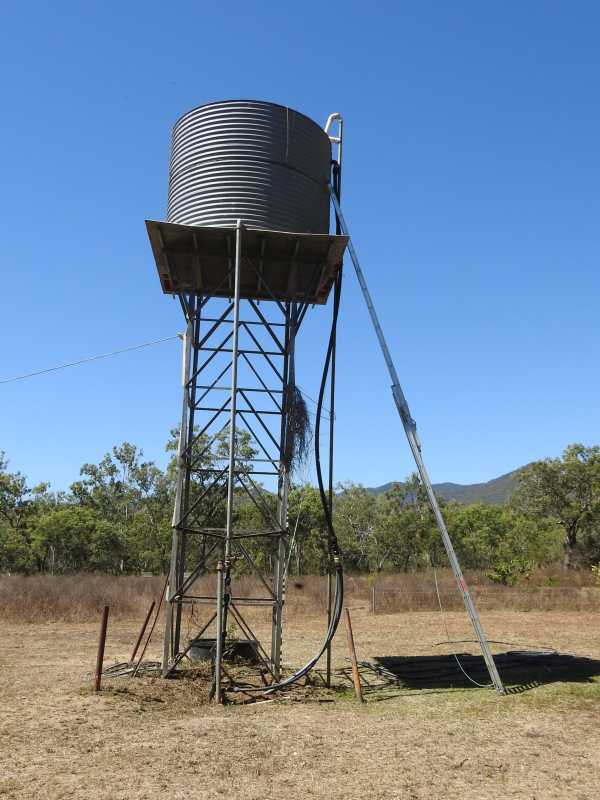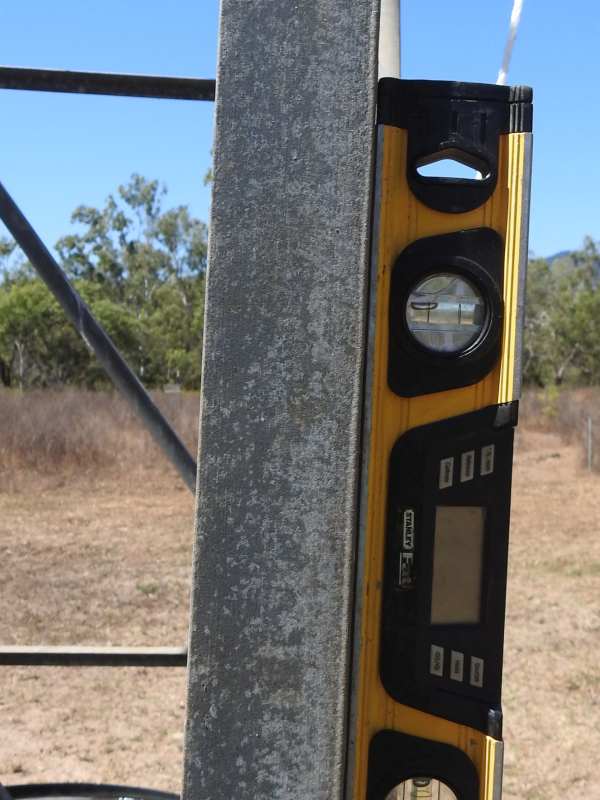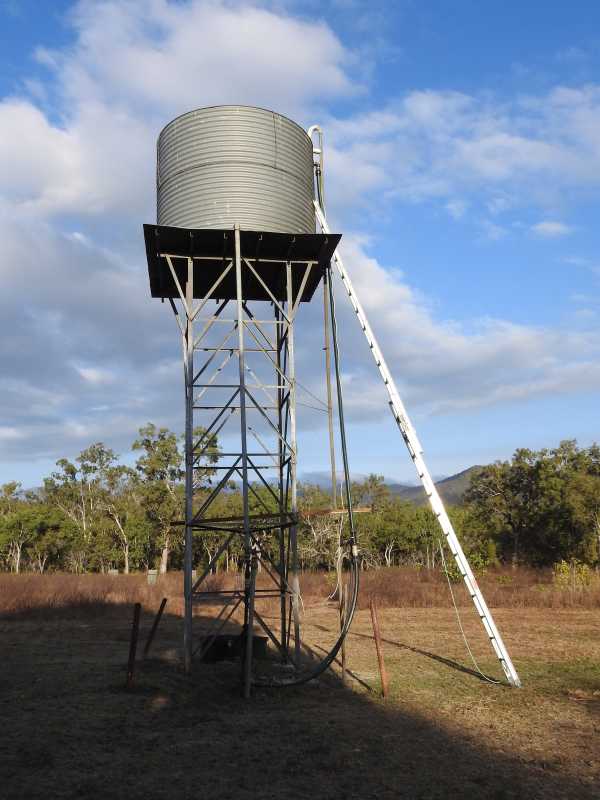
Kanjini News
20th August 2018
Solar Pump as new water supply
As reported earlier, we lost the electric water pump supplying the houses during the extraordinary flood in late March.Since we lost the pump, the electricity line to it was ripped and damaged and the pump shed got washed away, Suncorp gave us very quickly over $10,000 to cover the quotes to replace all of that water infrastructure.
After some considertion we decided to add a few thousand dollars towards a much more sustainable and more versatile solution (see map below).
This involved contracting Scotty, one of our new subdivision neighbours to:
- dig over one kilometer of trenches with his little excavator and lay 2" pipe from the exisitng 6" underground main down to the houses and over to the caretaker's house site and shed.
- install eight 2" gate-valves along the way down to the houses
- float 125m of 2" pipe on the lake to the pontoon
- fit a wooden frame onto our pontoon and
- fit the six solar panels (including bird deterrants), the submersible pump and its controller to the pontoon
- put a float valve onto the exisitng house tank
We also had the challenging job to straighten the leaning water tank stand next to the houses :-), see below
By spending 50% more, we have not just eight new water points between our main gate and the houses, water to the caretakers, high presure to the houses and orchard, but also free water as long as the sun shines. Placing the solar pump on the pontoon in the middle of the lake ensures maximum sunshine. Since our property enjoys over 300 sunny days a year and that solar pump delivers up to 35,000 litres/day to our header tank, we will save a lot of electricity costs and we do no longer need to use a noisy fire-fighting pump to have water at lake side. The whole system uses an existing 27,000 litre tank on the ridge, so we still have plenty of water at night.
Assuming every day of the year had full sunshine, this pump would deliver 10 Million litres a year, which would lower our lake by about 10 centimeters. Realistically we estimate to be able to use about 5 million litres/year, which is still plenty of water :-)
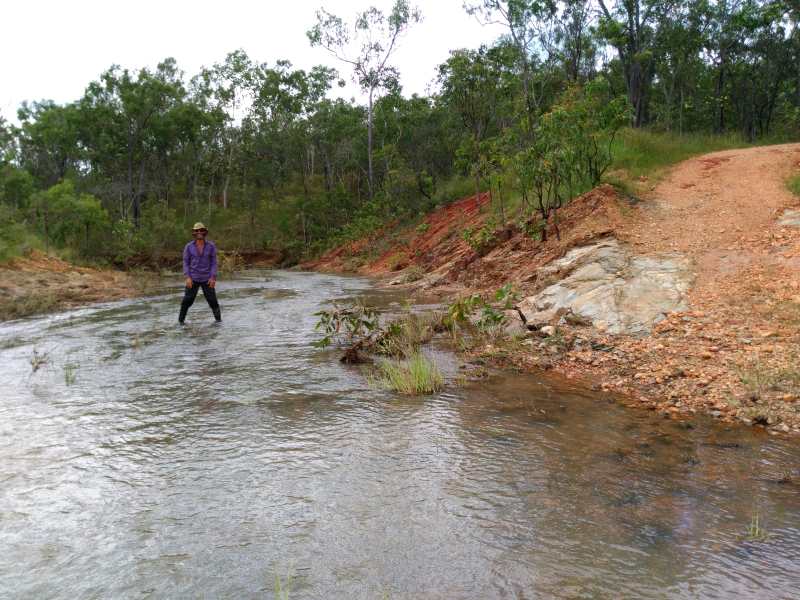 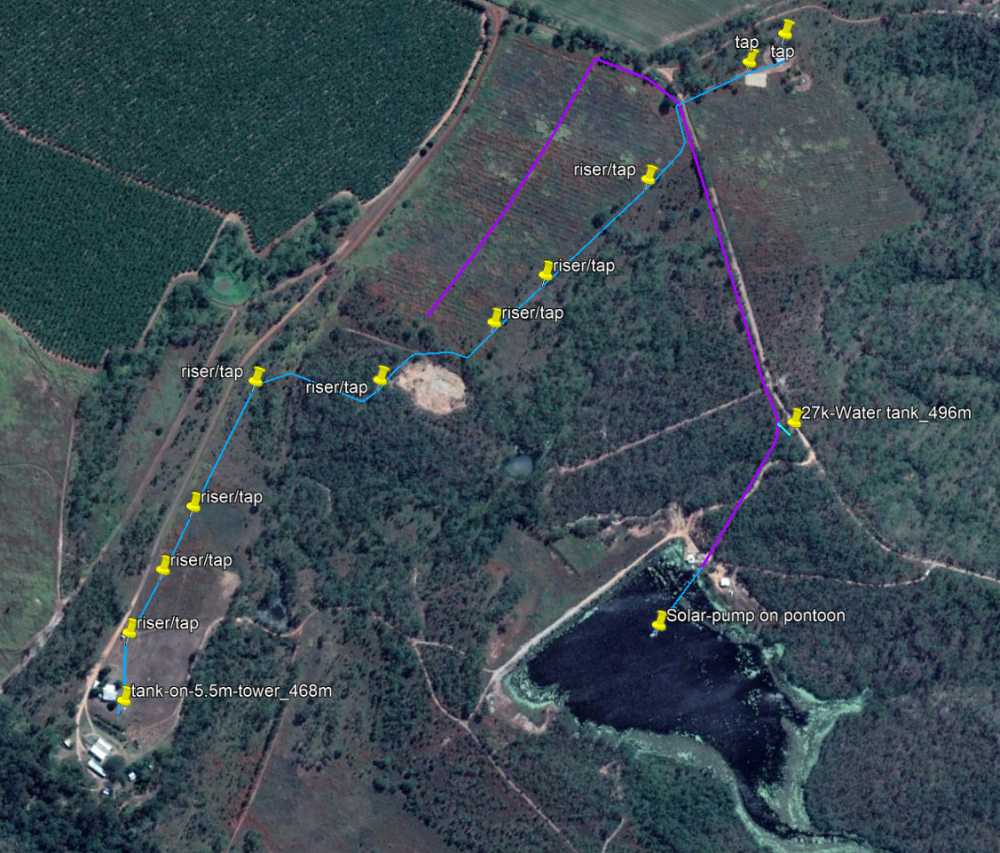 For scale, the risers/taps are every 100 or 200 metres. Purple is the old 6" underground main, blue is the new 2" pipe. |
||||
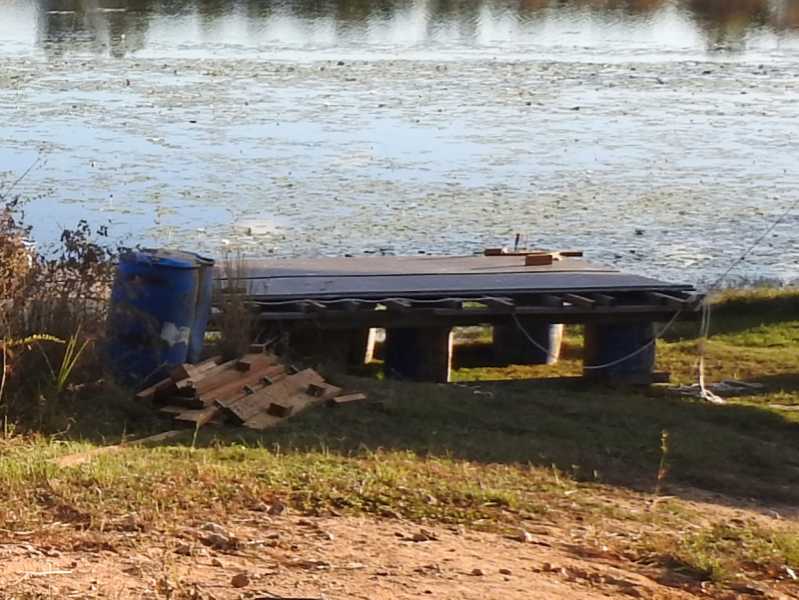 Here is the 2.5m by 6m pontoon out of the water on top of 200 litre drums so we can easily work on it.
|
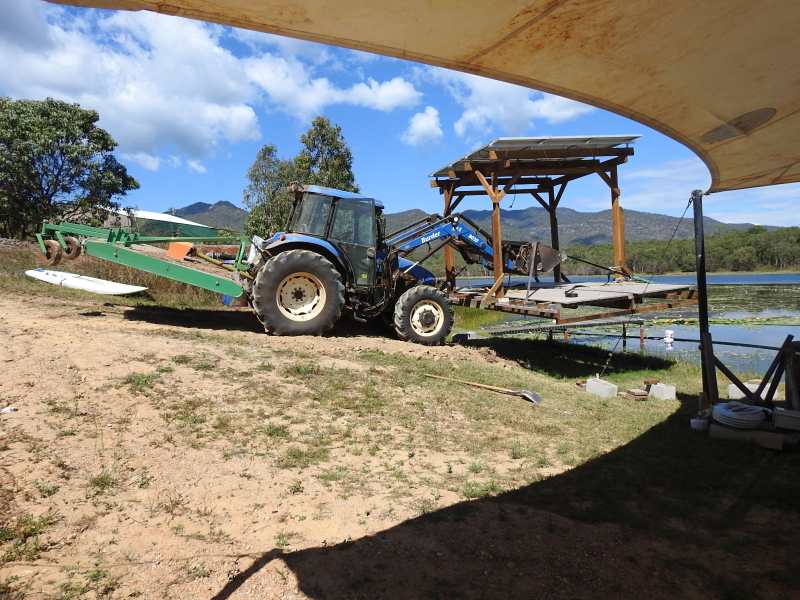
With all the additions, there was a lot more weight in it.
How to get a half ton pontoon back into the water... |
|||
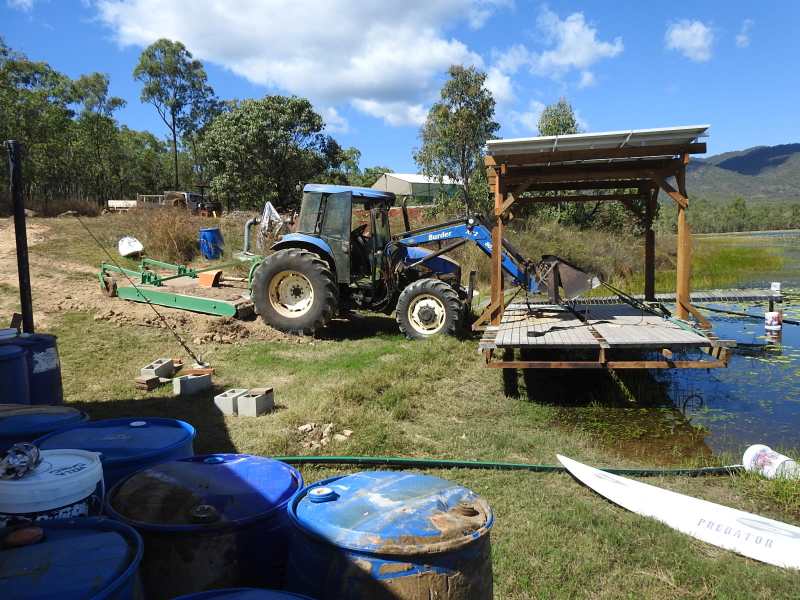 Our 95 horses were strugling with the weight and slope, but did get it down to the water in one piece. |
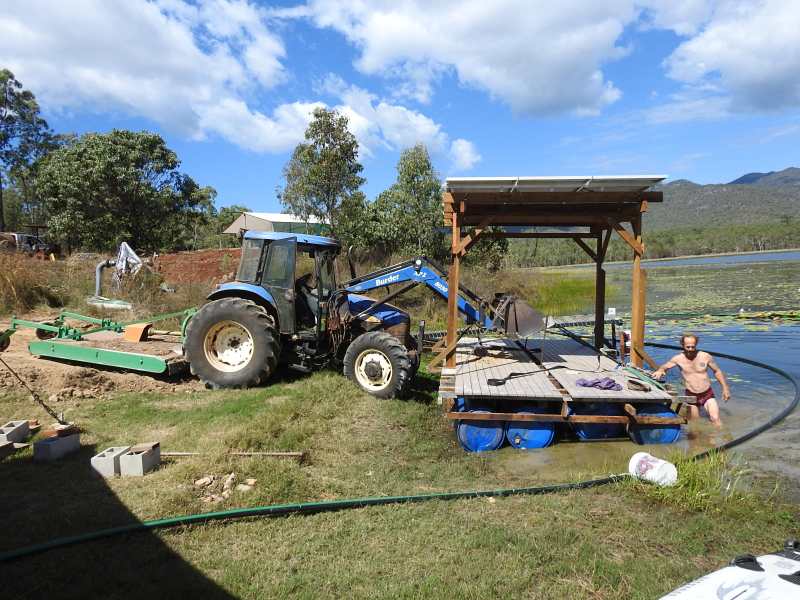 There we placed sixteen 200 litre drums under it so it floats again |
|||
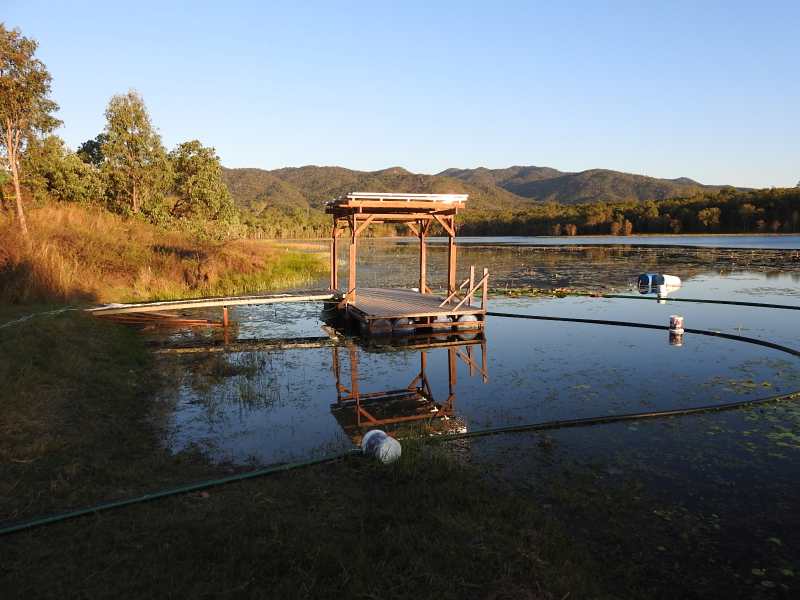
The re-furbished pontoon with
solar panels on top looks really beautiful tied up to our pier. Thanks
Scotty you have done a great job.
|
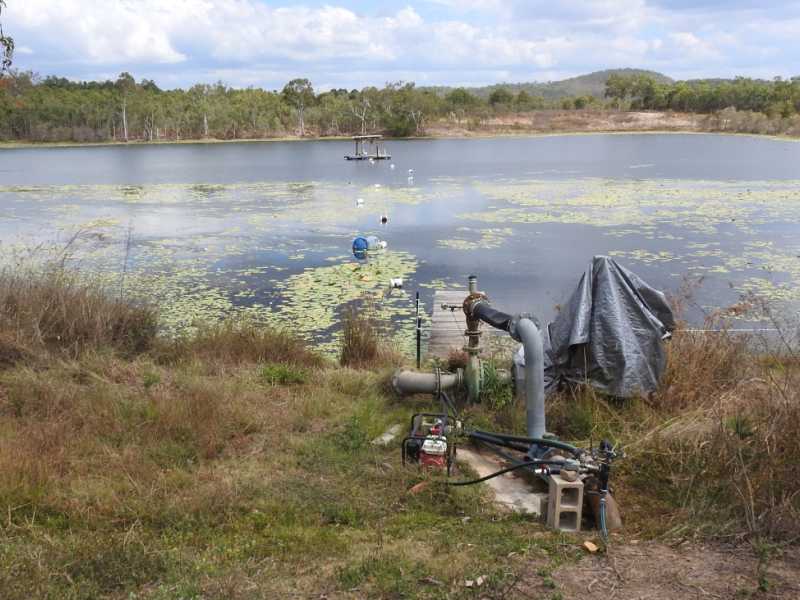 And to us the pontoon looks
even nicer back out on the lake pumping water.The white spots to it are
recycled paint buckets floating the 2" pipe
|
|||
|
||||
|
||||
Back to News
© 2009- Kanjini.org
